Cyprus downhill biker challenges others to eat her dust
If she can do it, any woman can do it. That’s the message of Cypriot downhill biker Savvina Koulle, who has used a combination of physical strength, fitness, technical skill and mental focus to break into a male-dominated sport, where women only account for around 20 per cent of athletes.
With a social media handle of Eat her dust, she says this is not a reference to herself, but to all the ‘hers’ out there, in addition perhaps to all the other who took part in the women’s e-bike category of the Mountain of Hell this year, which she won, the first woman from Cyprus or Greece to ever race in the competition.
The Mountain of Hell has a reputation for being an exhilarating challenge for mountain biking enthusiasts worldwide, held annually at Les Deux Alpes in France. As one of the most intense mountain bike races in the world, the competition features a mass start of around 1,000 riders, both professional and amateur, from a start point up a glacier at about 3,400m. The race stretches roughly 25km with a vertical drop of approximately 2,400 to 2,500 meters.
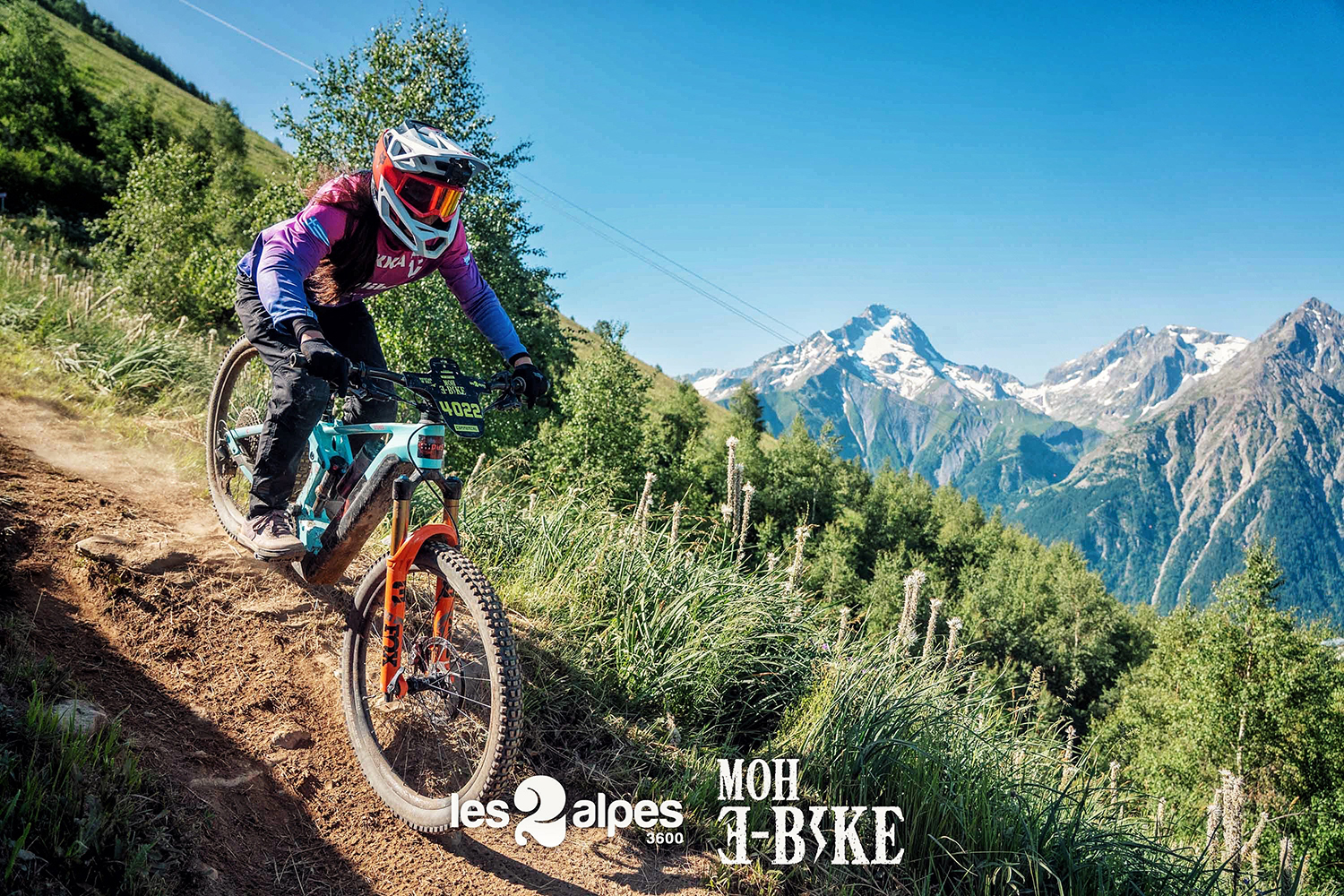
“I chose the Mountain of Hell because I wanted to challenge myself. I really wanted to see if I could do it; first of all finish the race and secondly perform the best I could,” says Koulle.
To this end, the 25-year-old Limassolian reorganised her entire life to make it to the top of the Alps in July. Having graduated in accounting and finance from the University of Cyprus, the first step was to change field. “I did two to three internships in big forex companies and realised this wasn’t the job that would make me happy. Eventually, I did a masters degree in digital marketing and data analytics in Madrid, Spain and came back to Cyprus and started working in marketing agencies. I really like the industry because you have varying clients, you do marketing strategies, communication,” she adds. Her second step was to go independent. “In January, I started my own marketing agency and now have my own medium-sized clients,” she says, which came in handy for step three: improving her skills as a downhill mountain biker.
“I was into extreme sports as a child. During family summer vacations we used to go skiing, rafting, canoeing, this kind of stuff, and in Cyprus we used to ski when we had snow. This definitely played a role in me being into extreme sports. I grew up with this mindset but not with the competitive mindset, that’s t I believe you build it up,” she adds. “It’s hard for me to build up the competitive mindset that athletes carry but I’m working on it; I don’t consider myself a professional athlete, I just shifted my hobby to the next level, I train as an athlete but I don’t think people recognise me as an athlete. I always feel that if I have competition I’ll push to become better, if we had no competition then I don’t feel we would have this indirect push to become better and the best version of ourselves, in every aspect of life.”
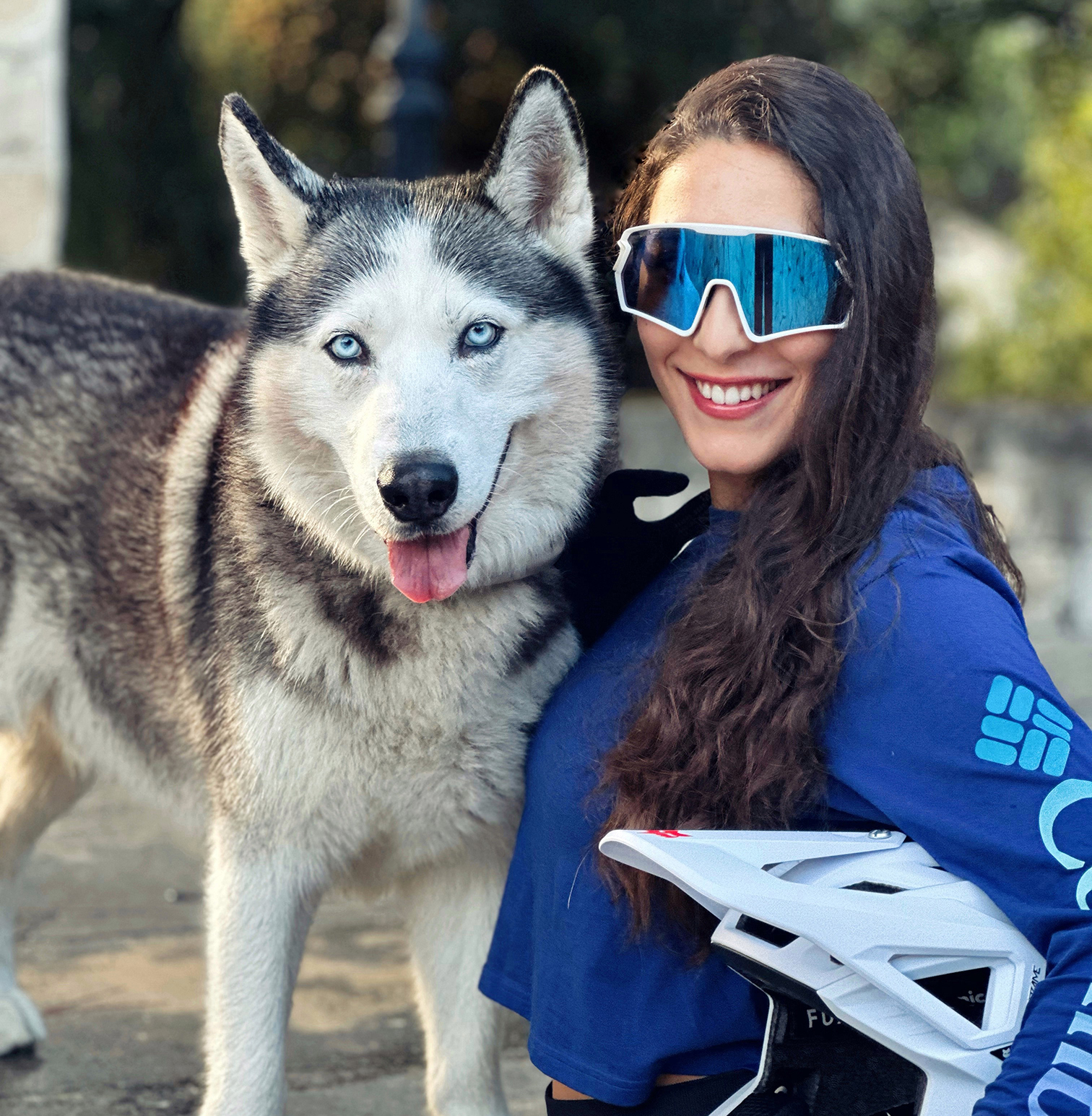
Having moved to Platres permanently, where there are obviously more hills, to accommodate her training, Koulle worked remotely and followed an intense physical, dietary and work schedule for the three months prior to the race. “I couldn’t live in Nicosia and go to Troodos to train every day,” explains Koulle. ”I was training five to six hours a day and I had to be very careful with my nutrition and supplements, and recover well so that I could work out the following day, I had to collaborate on lifts, a car was taking me to the top of Troodos and then I was doing the downhill and a car would drive me back up so I could do it twice. I was trying to do a simulation of the Mountain of Hell but it wasn’t the same because the Mountain of Hell is an hour race, in Cyprus maximum decent is 30 minutes,” she adds.
Once in the Alps, Koulle qualified in the preliminaries, an achievement in itself. “The trail we had to follow for the qualifying e-bike category was way harder than the normal trail that analogue racers had to follow. They added extra sections, with very steep uphills, almost vertical, the most experienced athletes couldn’t pedal up, they had to push their bikes instead and then we had to go down steep sections with an e-bike which is way harder, it’s 25kg while the analogue downhill bikes are 14kg-15kg max,” she reveals.
“In the final race only one other woman showed up. The Mountain of Hell hosts 1,200 athletes in all categories, and men and women race on the same day; many women are afraid of the mass start cause you’re all starting together, its super scary,” says Koulle. “It’s one of the most scary things I’ve experienced in my life because you don’t know if someone’s going to come from behind and hit you… The snow, which is not snow, it’s icy up there at 3,600 meters, twice the height of Troodos; you feel it, and if you work out in that altitude, you feel that there’s not enough oxygen. It’s also super slippery, so if you fall there’s no way you can come back up, you just slide and hope you don’t fall off the mountain. I had a fall in the final race, I fell and I was sliding, it felt like an eternity, I was wondering when I was going to stop. I just hoped there was something I could grab and stop, but I couldn’t, and prayed no one would ride over me. Eventually I stopped, I ran up to take my bike, I was okay which was the most important thing and I started again. But I couldn’t see where the other woman was, or if she overtook me. I was pushing and pushing and did my best, I was trying to pass by other athletes, because there are a lot of athletes on the same trail, you don’t have space to overtake, so you have to shout, they have to let you overtake; it plays an important role that you’re a woman, men aren’t too competitive with you because they know women are in a different category.” It’s an exhilarating experience during which riders pass through so many different terrains, from ice, snow, mist, mud, forest. “My ears were popping because of the altitude, it was a weird experience,” she says.
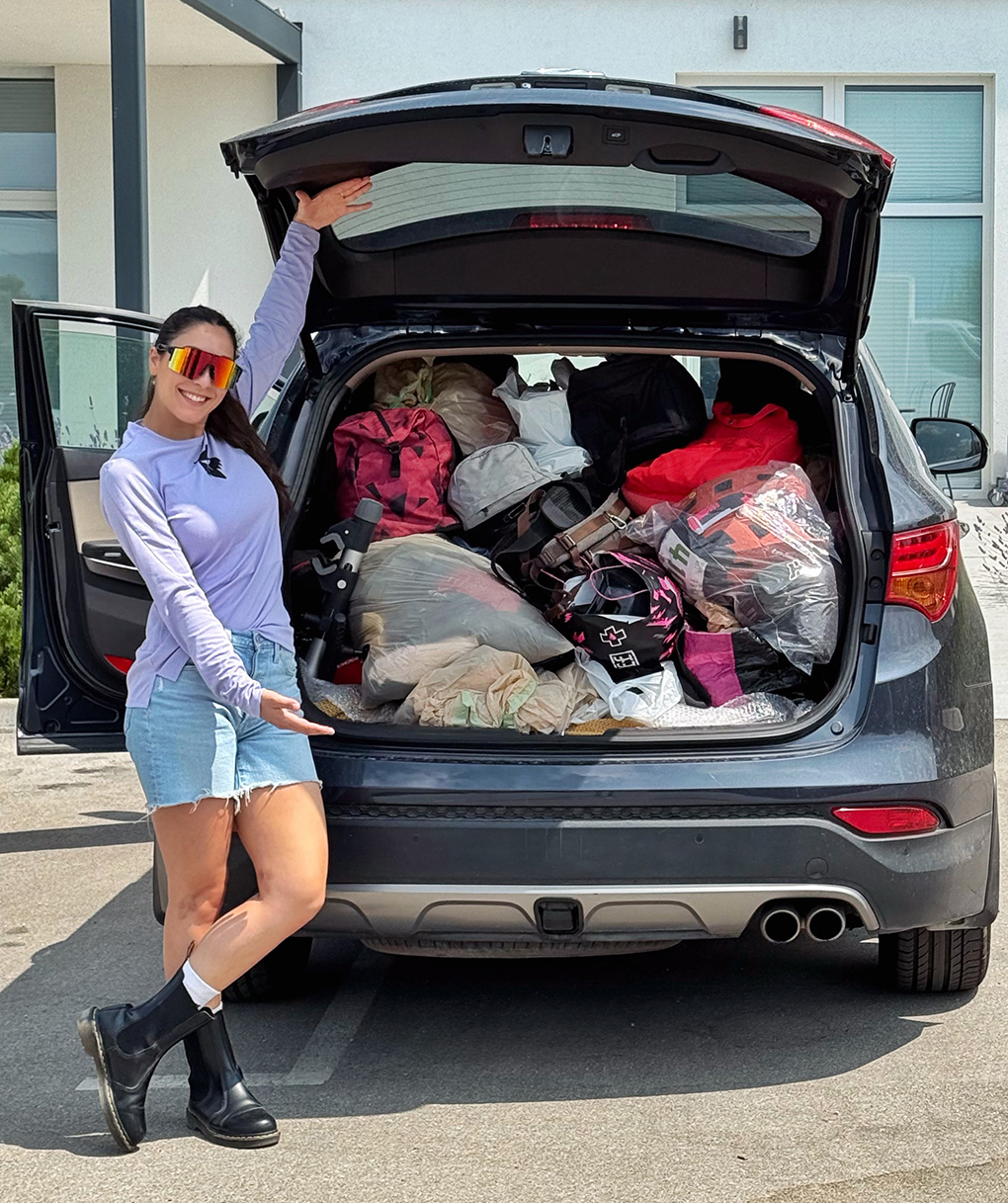
“When I finished and I crossed the line everyone was clapping and cheering, it was a really nice feeling. Everyone else standing there were men. It was the ideal scenario, but I was really only trying to challenge myself, test my limits… Show up there and do it. When you go up and stand at 2,600 meters and you know what’s coming next, you may back off”.
It’s a far cry from Cyprus.
The downhill community on the island, Koulle estimates, is approximately 100 people with two to three small races organised each year. “I realised there are only two to three women that are into downhill in Cyprus and I started the social media account with the aim of inspiring more women to try this sport, and motivate them to do anything they want to in their life,” explains Koulle. “We have the ideal terrains although we don’t have the infrastructure, if we had lifts, if we had more trails built for mountain bikes… the mountains are there, you just need to adjust them a little bit. Use the ski lifts in Troodos and convert them for mountain bike use during the summer. I had this experience when I went for the Mountain of Hell race. I saw the same resort that has skiers and snowboards in the winter, during the summer is full of mountain bikers”.
Having returned from the race, Koulle envisions she will go back next year and try and beat her score. But locally, she also intends on drawing more women into the sport. “I’m organising a mountain bike weekend in Troodos. I got a lot of response from women who want to try, which is very encouraging. There are people who want to try and explore this sport, you’re in nature and it’s beautiful and it doesn’t have to be too extreme, you can go to bigger dirt roads and just explore Troodos or the mountains that we have. The percentage of women is still super small in comparison to men. There were 1,000 men and five women in the analogue race this year, so it’s not even one per cent. The e-bike category was just 2 women among 1,400 men.
Koulle appreciates that the lack of women in the sport isn’t just down to usual stereotypes. “It’s just so scary. And women are more scared than men, it’s the mass start and all the other things that make it an extreme sport. I think women feel like the risk is too much. I believe more women would participate if there was a separate race for women, but it’s called Mountain of Hell for a reason, they’re not going to change that.
“Today I think if you work hard, really hard, you can do anything in your life, you just need to work for the thing that you’re aiming for. Mountain of Hell taught me that I cannot be average there, because if I go with an average mindset I’ll injure myself… I had to make sacrifices, lots of sacrifices, so adapting that mindset and that algorithm in my personal and professional life was hard. You need to prioritise what you want to do.”
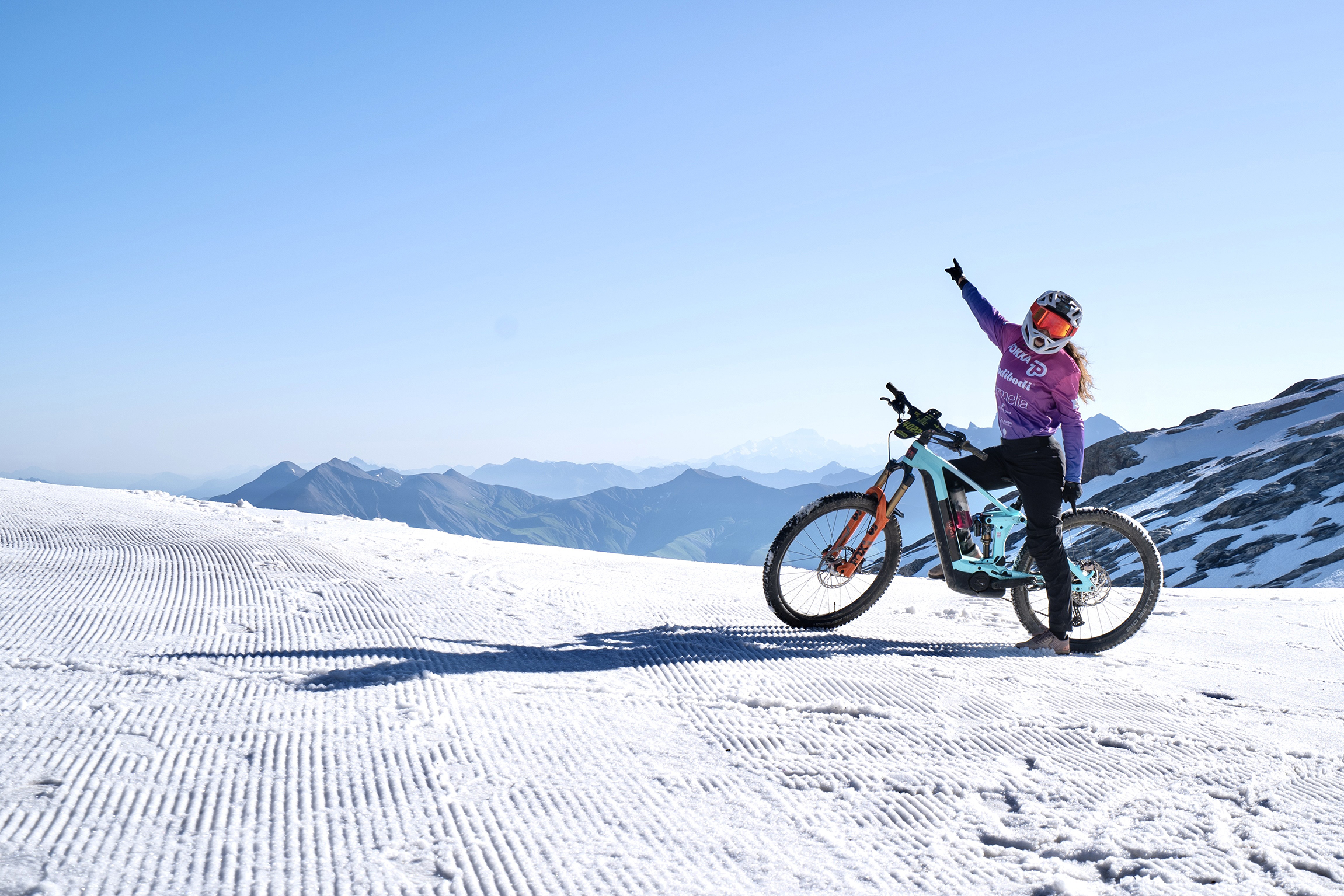
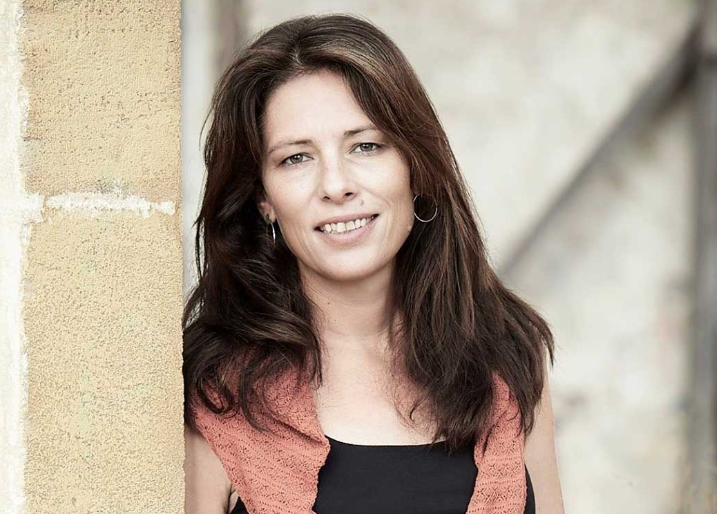




Click here to change your cookie preferences